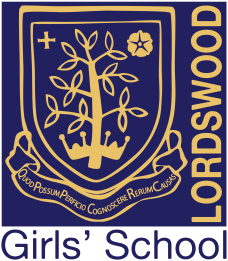Content
| Year 7 | For English in Year 7, students now start with a transition scheme based on ‘Charlie and the Chocolate Factory’ to ease them into secondary English and begin to develop the skills needed to step up to KS3. They then start the Fabulous Fiction scheme after four weeks until Christmas. In the summer, they begin a scheme based on a number of Victorian texts (no longer just Dickens) to familiarise them with different text styles, both fiction and non-fiction, and develop their general knowledge of the time period. The summer scheme is the same as it was last year, ‘The Merchant of Venice’. |
| Year 8 | ‘Relationships’ poetry: students read and explore a range of poems by poets of various cultures and background, all dealing with a variety of ‘relationships’ – the parent-child bond, romantic love or sibling rivalry. Students also explore non-fiction texts linked to the relationships presented throughout the poems, as well as having the opportunity to debate and to write their own poetry. Shakespeare’s ‘Romeo and Juliet’: students watch, read and explore the play, its background and its key themes. Extracts of non-fiction linked to themes in Shakespeare’s play, such as forced and arranged marriage, barriers to love, parenting, gang culture and knife crime. Students also have the opportunity to produce their own non-fiction writing, such as newspaper articles or letters based on key themes in ‘Romeo and Juliet’. The Author’s Craft: students read and explore John Steinbeck’s ‘Of Mice and Men’, as well as watching the film adaptation. Extracts of fiction and non-fiction that deal with some of the themes in Steinbeck’s novella, such as racism, loneliness, dreams and friendship. |
| Year 9 | Students will read a variety of short stories from the ‘Telling Tales’ anthology. Students will develop their responses to a variety of unseen fiction and non-fiction texts and extracts from a range of time periods Students will explore a range of pre-1914 and post 1914 poetry, developing comparative skills. At the end of year 9 students will start the novel ‘Jane Eyre’ which forms part of their GCSE coverage. |
Assessment (including homework)
| Year 7 | Baseline assessment for descriptive writing at the start of the year Literature assessment: analysing Dickens’ presentation of Scrooge Reading assessment: extract from 20th century fiction Writing assessment: creative writing – descriptive or narrative Reading assessment: 19th and 21st century non-fiction Literature assessment: analysing Shakespeare’s presentation of Shylock |
| Year 8 | Baseline assessment for writing to express a viewpoint Reading assessment: 19th and 21st century non-fiction Literature assessment: analysing Shakespeare’s presentation of love in ‘Romeo and Juliet’ Reading assessment: an extract from Steinbeck’s ‘Of Mice and Men’ Writing assessment: descriptive or narrative writing End of year reading and writing examination |
| Year 9 | Analysis of unseen poetry A comparison of two known poems GCSE style literature assessment on ‘Jane Eyre’ AQA KS3 English language assessment questions Writing to describe Writing to express a viewpoint |
How to support your daughter
Encourage your daughter to read independently for pleasure.
You may want to read with her,or have regular discussions with her about the texts she is reading.
You could ask your daughter to check her homework carefully for errors in spelling, punctuation and grammar before she hands it in.
Encourage her to read through her sentences carefully to ensure that they are clear and accurate, reading aloud if necessary.
Your daughter will probably have regular spelling tests; you could help her to prepare for these by testing her on the spellings that she has to learn.
If your child is struggling with a particular English skill or is failing to meet her target level, please encourage her to attend KS3 catch up club on Thursday lunchtimes.
